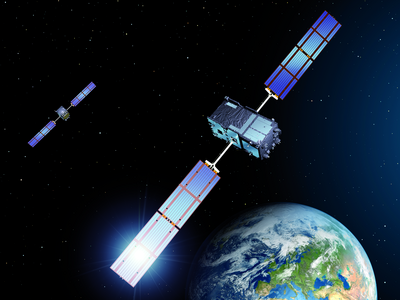The Galileo project operates in several niches, and in the scientific niche one consortium operates, in which the Technion participates. Professor Finney Gurfil is one of the active researchers in the project on behalf of the Technion

The idea for the Galileo project - the European answer to the American GPS system - came up already in the nineties, but its implementation encountered many difficulties, including heavy American pressure, which increased following the events of September 11. Following the historic attack, the Americans claimed that a satellite navigation network that cannot be shut down in emergencies is a dangerous entity.
But the project was launched against the noses and anger of the Americans in May 2003, in an agreement between the European Union and the European Space Agency. The system, which was supposed to go live last year, is not yet operational, but the cumulative funding for its development currently stands at more than 5 billion euros, and the Europeans estimate that in 2015 it will begin operating in a reduced format (18 satellites, about half of the final goal).
The Galileo project operates in several niches, and in the scientific niche one consortium operates, in which the Technion participates. Professor Finney Gurfil is one of the active researchers in the project on behalf of the Technion, and is "signed" on several projects within Galileo, one of which is Medacon. As part of this project, Professor Gurfil developed a system for testing the "Agnos" satellites, which are supposed to correct the measurements in the Galileo system. The test system will make it possible to increase the accuracy of Galileo's activity, and also to neutralize errors related to the altitude at which the satellite is located. In this project, there was a rare and interesting collaboration between the Technion and researchers in Algeria, Morocco, Tunisia, Egypt and the Palestinian Authority.
Another project within the Galileo framework is GEO6 - a project that was nicknamed "traffic policeman in space", and is designed to prevent collisions between satellites, such as the one that occurred in early 2009 over Siberia between a Russian satellite and a civilian communications satellite. The loss of satellites, it is important to note, is the minor damage of such collisions; The major damage is non-biodegradable debris debris that endangers other satellites moving in close orbits.
The software developed in this context by Professor Gurfil and his people collects information from all the satellites in the project, and calculates their position and relative speed with an accuracy of a few centimeters. Based on this information, it directs and activates the satellites automatically, allowing each satellite to change its position autonomously, and to avoid a collision.
Professor Gurfil is involved in another project - FastWing - which is not related to the Galileo project. In this framework, a smart autonomous parachute was developed for parachuting extremely heavy loads (6 tons). This is a further development of a previous parachute, which allowed the parachute of lighter loads. Professor Gurfil and his colleagues in the Faculty of Aeronautics and Space Engineering handled various aspects of the project - Professor Haim Avrabamowitz developed part of the parachute's mechanical system; Professor Arthur Grunwald participated in the development of the parachute cord control system, which determines its movement; And Professor Gurfil himself focused on the autonomous guidance system. In this context, he also developed a model for operating a "parachute band", that is, different parachutes that will perform complex tasks in a smart and autonomous manner. "This is a system that also knows how to deal with malfunctions - if one of the parachutes has been disabled, it knows how to give instructions to the other parachutes in the best possible way."

2 תגובות
It does not seem to me that our non-participation will prevent or delay the establishment of the system.
Only to me it seems as if we are helping the Arabs to get a satellite system that does not depend on the Americans
And eliminate a significant strategic advantage for our ally?
Correct me if I'm wrong